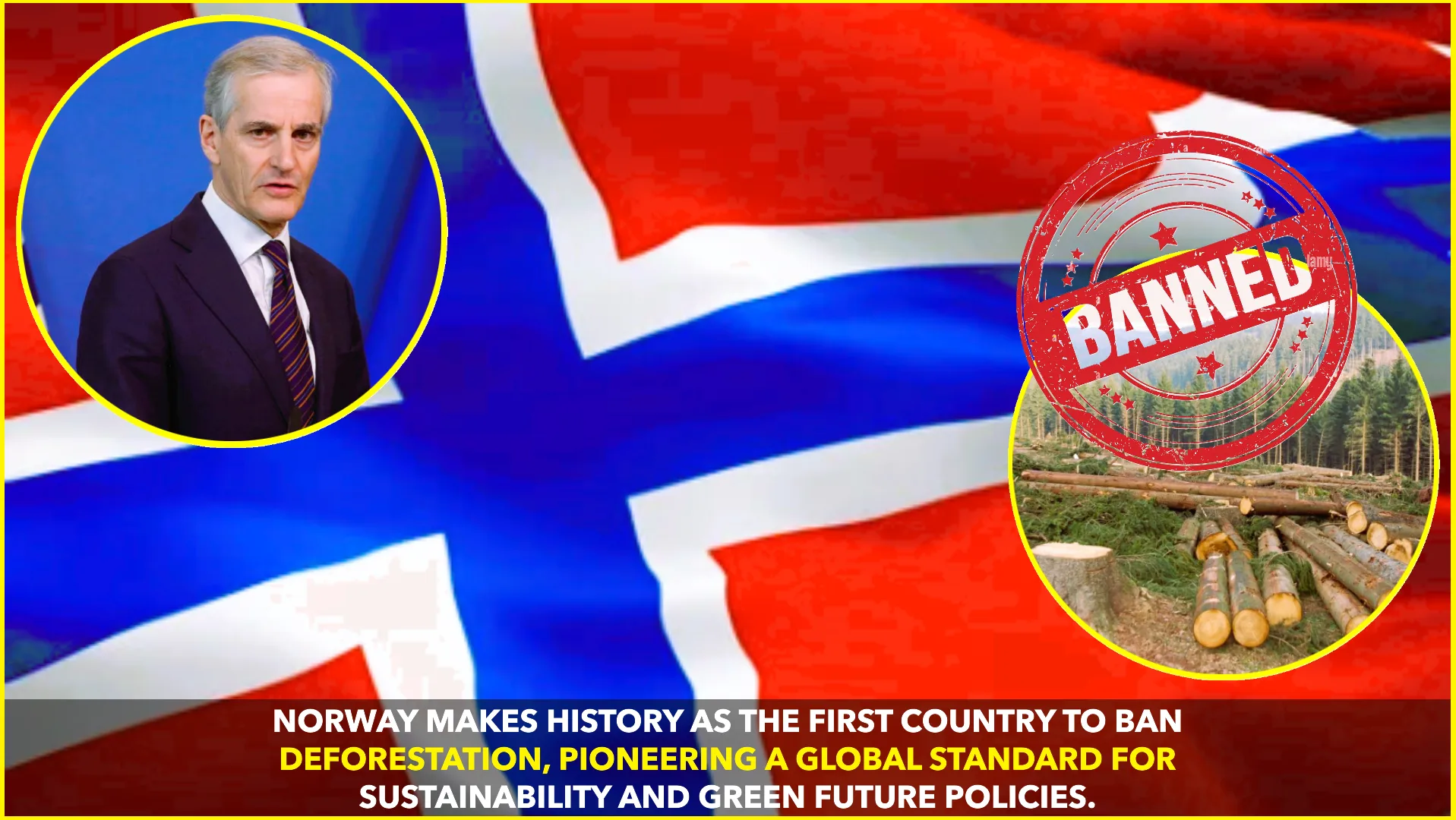Norway has etched its name into environmental history by becoming the first country in the world to officially ban deforestation. This bold step reflects a long-standing commitment to protecting natural resources and tackling climate change. By refusing to import products tied to forest destruction and gradually phasing out biofuels linked to deforestation, Norway has set a remarkable global precedent.
This move is not just a law—it is a signal of intent. Norway has committed to ensure that no public procurement contracts support deforestation, whether through food, timber, or fuel. Environmentalists are hailing this as one of the strongest policy-driven actions taken by any nation to protect the world’s forests.
Why This Ban Matters
Forests are often called the lungs of the Earth. They absorb massive amounts of carbon dioxide, regulate weather patterns, and preserve biodiversity. Yet, global deforestation rates remain alarming. According to the World Wide Fund for Nature (WWF), an estimated 10 million hectares of forest are lost every year, mainly due to agriculture, logging, and industrial expansion.
By banning deforestation-linked products, Norway is sending a clear message to producers and corporations worldwide: environmental degradation will not be tolerated in exchange for profit. This policy ensures that Norway’s market does not contribute to forest loss in countries like Brazil, Indonesia, and parts of Africa, where large-scale deforestation has long been tied to commodities such as palm oil, soy, and beef.
A Model for the World
Norway’s leadership is not a sudden development. The country has been at the forefront of climate and forest protection initiatives for years. In 2008, it pledged $1 billion to Brazil to support efforts to reduce deforestation in the Amazon. It has also supported similar forest preservation programs in Indonesia and African nations.
Now, by legally enshrining a deforestation ban, Norway is taking its commitment further. Experts believe this move will inspire other nations to adopt similar policies, especially as pressure mounts on governments to act against climate change.
“Norway is showing the world that sustainability is not a slogan but a policy choice,” said Nils Hermann Ranum of the Rainforest Foundation Norway. “This law proves that a country can protect forests without compromising economic progress.”
Impact on Biofuels
One key part of the ban focuses on biofuels, which have often been seen as an alternative to fossil fuels. However, studies have revealed that biofuels made from palm oil and soy contribute heavily to deforestation. By phasing out such imports, Norway is addressing a hidden driver of environmental damage.
This approach highlights a broader understanding: not all renewable energy sources are automatically sustainable. The long-term health of ecosystems must be considered before labeling fuels as “green.”
Global Reactions
Norway’s announcement has received applause from environmental groups around the world. Greenpeace called it a “monumental step,” while the United Nations Environment Programme (UNEP) praised Norway for aligning economic policies with ecological preservation.
However, the move may face pushback from industries and exporting countries that rely heavily on deforestation-linked commodities. Analysts predict short-term trade challenges but emphasize the long-term benefits of forcing global markets to embrace sustainability.
A Commitment Beyond Borders
What sets Norway apart is its readiness to apply environmental principles not only domestically but also internationally. By scrutinizing imports, the country acknowledges that environmental responsibility cannot be confined within borders. This reflects a vision of shared global responsibility for the planet.
Looking Ahead
The ban underscores a fundamental truth: sustainability requires more than pledges—it requires enforceable actions. Norway’s example demonstrates that governments can wield policy as a tool to combat ecological destruction effectively.
As climate change intensifies, this decision resonates beyond Norway’s borders. It offers a pathway for other nations to consider, balancing development with environmental preservation. The question now is whether other countries will follow Norway’s lead and turn promises into action.
By choosing to ban deforestation-linked products, Norway has shown the world that it is possible to prioritize the planet without stalling progress. The move is a historic reminder that real change begins with bold choices.
Source:
Rainforest Foundation Norway, United Nations Environment Programme, World Wide Fund for Nature (WWF).










